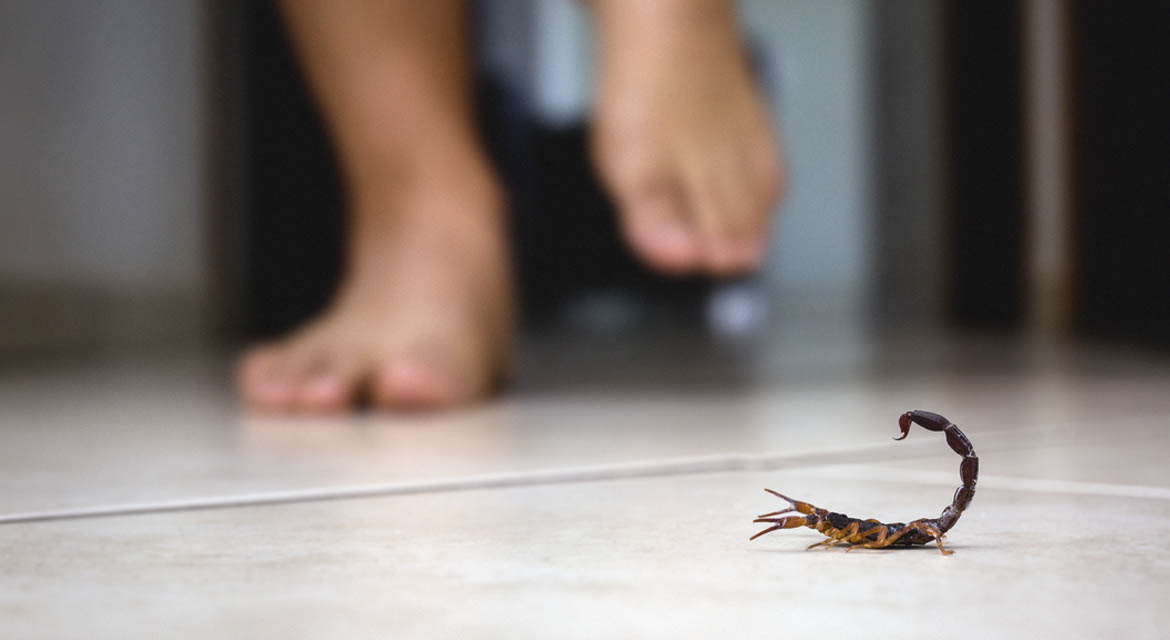
Scorpion Facts & Information
The concerns of a scorpion infestation at home include the potential danger of scorpion stings, especially to children or individuals with allergies, as well as the fear and unease caused by their presence in living spaces.
Risks of Scorpions
Sting and Venomous Bite
Scorpions are known for their venomous stings, which can cause painful symptoms in humans. Depending on the species and individual sensitivity, scorpion stings can range from mild irritation to severe reactions. Symptoms may include localized pain, swelling, numbness, tingling, and in rare cases, more severe systemic effects. Certain scorpion species, such as the bark scorpion, found in some regions, are particularly venomous and pose a greater risk to human health.
Safety Hazards
Scorpion infestations can be especially concerning for vulnerable populations, such as children, elderly individuals, or those with compromised immune systems. The presence of scorpions in living spaces, especially bedrooms or areas where people sleep, can pose a significant safety hazard. Accidental encounters or stings during sleep can lead to heightened risk and potentially severe reactions, requiring prompt medical attention.
Psychological Impact and Fear
Scorpions are often associated with fear and anxiety due to their venomous nature. The presence of scorpions in and around homes can cause significant psychological distress and fear among occupants, resulting in disrupted sleep patterns, stress, and a general sense of unease. Fear of scorpion stings can also limit outdoor activities, particularly in areas where scorpion populations are known to be prevalent.
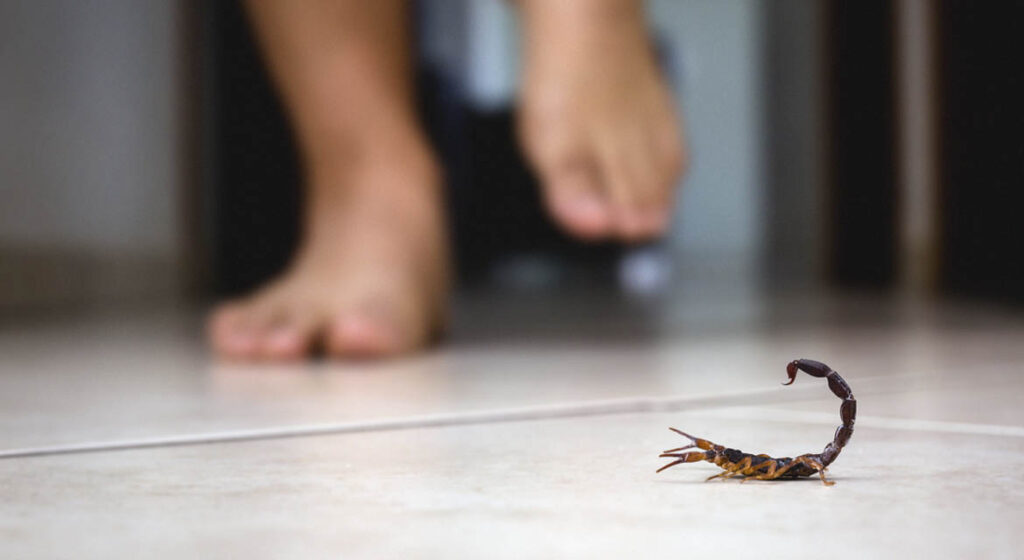
Truly Nolen GUARANTEE
If you’re not completely satisfied, you’ll get a full refund on your most recent service with our 100% money back guarantee.
Common Species of Scorpions
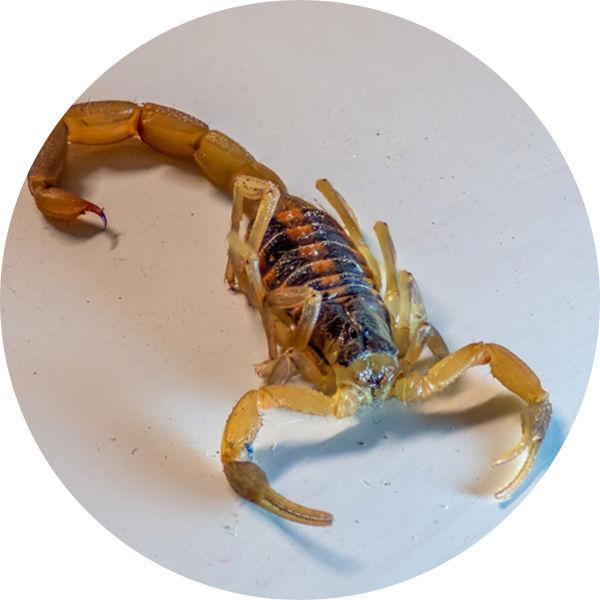
Bark Scorpion
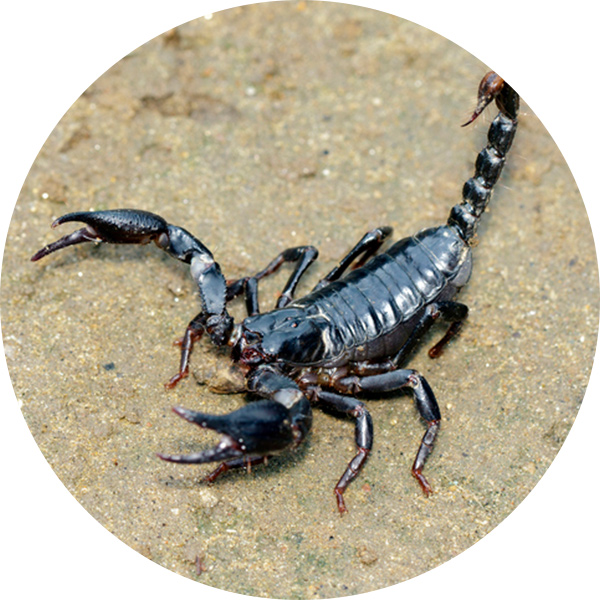
Emperor Scorpion
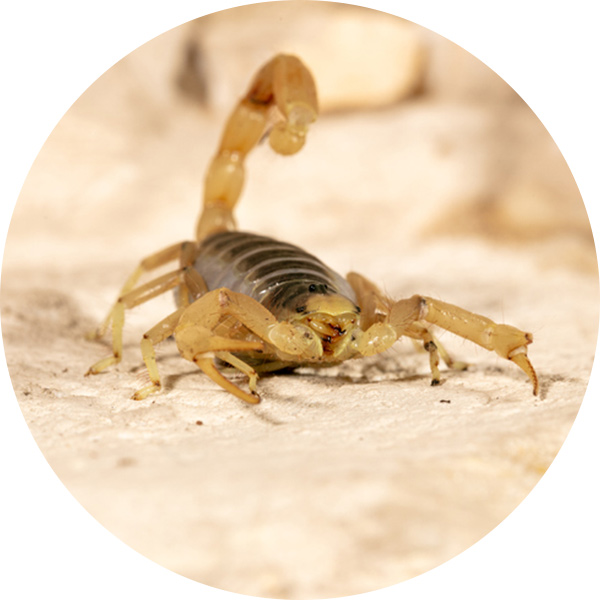
Arizona Hairy Scorpion
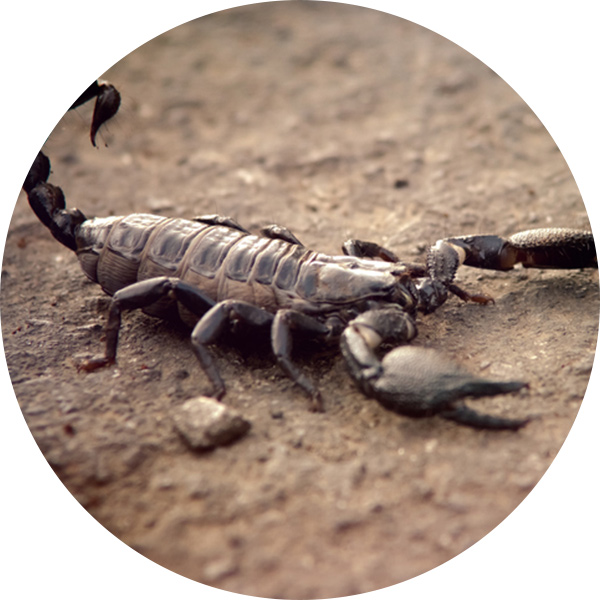
Asian Forest Scorpion
How To Identify Scorpions
Scorpions can be identified by their elongated bodies, eight legs, pincers, and a curved tail with a stinger at the end. To identify a scorpion infestation at home, look for live scorpions, shed exoskeletons, or signs of their presence such as droppings, and pay attention to areas where they are commonly found, such as dark corners, basements, or crawl spaces.
Scorpion Appearance
Scorpions are arachnids characterized by their distinct appearance, with a pair of large pincers (pedipalps) and a long, segmented tail that ends in a venomous stinger. They typically have eight legs and an elongated body. Scorpion species vary in size, ranging from a few centimeters to several inches in length. They come in various colors, including yellow, brown, black, or reddish-brown, often with dark patterns or markings. Scorpions’ tough exoskeleton helps protect them from predators and harsh environmental conditions.
Scorpion Habitat
Scorpions are found in diverse habitats worldwide, including deserts, grasslands, forests, and tropical regions. They can thrive in both terrestrial and semi-aquatic environments. Scorpions prefer warm climates, as they are cold-blooded arachnids. They are often nocturnal, hiding in crevices, burrows, or underground during the day to avoid excessive heat and desiccation. Some species are adapted to arid environments, while others inhabit more humid areas. Scorpions are known to adapt to various soil types, including sandy, rocky, or loamy soils.
Scorpion Diet
Scorpions are carnivorous predators, feeding primarily on insects, spiders, centipedes, and other small invertebrates. Their diet varies depending on the species and availability of prey in their habitat. Scorpions have specialized front pincers (pedipalps) that they use to seize and immobilize their prey. Once captured, the scorpion uses its venomous stinger to inject paralyzing toxins into the prey, breaking it down and allowing for easier consumption.
Scorpion Behavior
Scorpions are generally nocturnal creatures, emerging at night to hunt for prey and mate. They are well-adapted for survival in arid conditions, as their exoskeletons help reduce water loss. Scorpions are known for their ability to survive long periods without food and can slow down their metabolism to conserve energy. They are highly skilled at navigating in the dark, using specialized sensory organs and fine hairs on their bodies to detect vibrations and locate prey. When threatened, scorpions may exhibit defensive behaviors, such as raising their tail and stinger in a defensive posture or delivering a sting if necessary.
Scorpion Reproduction
Scorpion reproduction involves a courtship ritual in which males engage in a series of complex behaviors to attract a female. Mating often takes place at night, with the male grasping the female’s pincers and guiding her during the process. After mating, the female scorpion produces a batch of fertilized eggs, which she carries on her abdomen. The young scorpions, called nymphs, hatch from the eggs while still attached to their mother and remain with her for a period until they undergo their first molt. Scorpions typically have a slow growth rate and long lifespan, with some species living for several years.
Scorpion Prevention
Preventing scorpion infestations involves reducing their access to suitable habitats and eliminating potential entry points into buildings. Maintaining a clean living environment, both indoors and outdoors, can help reduce the presence of prey organisms that attract scorpions. In areas where scorpions are a concern, using yellow-colored outdoor lighting and avoiding excessive moisture can help deter them. If an infestation occurs, professional pest control services may be necessary to assess the extent of the problem and implement targeted treatments to eliminate scorpions from the premises.
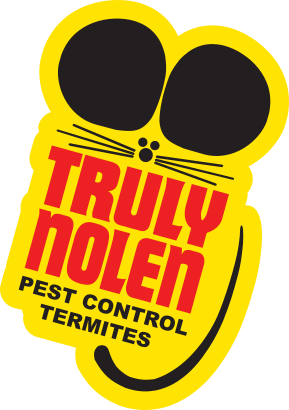
$50 Off Year Round Pest Control
Truly Nolen is a family-owned company with 85 years of experience providing the best pest control. If you’re not completely satisfied, you’ll get a full refund on your most recent service with our 100% money back guarantee.
The Truly Nolen Approach
Environmentally Conscious
We work to minimize our impact on the environment by using naturally occurring materials whenever possible.
Pet Friendly
Truly Nolen uses an Integrated Pest Management (IPM) approach designed with your pets in mind.
100% Money Back Guarantee
If you’re not completely satisfied, you’ll receive a full refund on your most recent service.
How Truly Nolen Gets Rid of Scorpions
Truly Nolen’s process for treating a scorpion infestation typically involves a comprehensive approach. They begin with a thorough inspection to identify scorpion entry points, nesting areas, and the extent of the infestation. Then, they may implement a combination of physical exclusion techniques, such as sealing cracks and gaps, along with targeted insecticide applications to eliminate scorpions and their potential food sources. Ongoing monitoring and follow-up visits may be conducted to ensure the effectiveness of the treatment and address any recurring issues.
Frequently Asked Questions
Are all scorpions venomous?
No, not all scorpions are venomous. While the majority of scorpion species possess venom, only a few are considered medically significant and pose a threat to humans.
How dangerous are scorpion stings?
The severity of scorpion stings can vary depending on the species and individual reaction. While most scorpion stings cause mild to moderate symptoms such as localized pain, swelling, and redness, certain species, particularly those found in certain regions like the Arizona bark scorpion, can cause more severe symptoms that may require medical attention. Learn More!
Why do scorpions enter homes?
Scorpions may enter homes in search of shelter, food, or moisture. They can access homes through cracks, gaps, open doors, or windows, and are often attracted to cool, dark, and damp areas.
How can I prevent scorpions from entering my home?
To prevent scorpions from entering your home, ensure that all entry points are properly sealed, including gaps in doors, windows, and walls. Remove debris and clutter around the house, trim vegetation away from the exterior walls, and minimize sources of moisture. Additionally, consider professional pest control services that specialize in scorpion control for more effective prevention.
Can I eliminate a scorpion infestation on my own?
While some DIY methods and products may help in reducing scorpion populations, a professional pest control service is often recommended for effective and safe elimination of a scorpion infestation. Professional technicians have the knowledge, experience, and specialized treatments to locate and treat scorpion nests, as well as provide ongoing monitoring and prevention strategies. Learn More!

